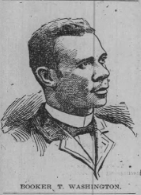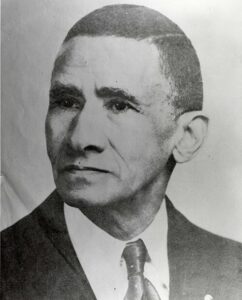June is African American Music History Month, formerly celebrated and known as Black Music Month prior to 2009, and it’s time to look back on a fairly unfamiliar time in history where African American music, aka Black American music, became a foundational influence for what is called Jamaican Toasting.
Not everyone knows that Jamaican toasting has some roots in Black American music and culture, stemming directly from Jamaican people absorbing Black American radio from and in the USA. Jamaica and other Caribbean islands began heavily absorbing Black American radio in the 1940s through the 1960s and picked up on the rhythmic and charismatic speech patterns of Black American radio DJs.
It was then that Jamaican selectors began to emulate the style and culture of Black Americans and Black American DJs talk known as jive talk. From there, Jamaicans began placing their own spoken word over records and calling it toasting.
Black American radio was so influential in Jamaica that even DJ Kool Herc who spent his childhood in Jamaica before moving to the USA at 12 years of age, was heavily influenced by what Black America was doing in the world of music with funk, R&B, soul and jazz and the jive talking DJs. When he got to the USA, he was already familiar with the sound because he grew up on the Black American Cultural Music sound.
When at 12 years old, it wasn’t that Kool Herc imported something purely Jamaican, but he simply was a Jamaican boy who continued to learn off of older Black American DJs in the USA, assimilating into a natural Black American music culture that rooted Jamaica’s own toasting.
By the time Herc was an adult, there had already been a party and DJ scene that Herc was able to fall right into that was heavily Black American. In fact, other DJs had already been doing what Herc came to join in doing prior to Herc’s coming of age in the USA. Herc was raised on Black American cultural music, and at the time in the 1960s and 1970s, there was no heavy Caribbean or Latino sound in New York. The sound was owned by Black America.
At that time and still today, Black American music is still the dominant force in the USA, and it is no doubt a foundation to some music styles around the globe. Black American music and dance culture came to be known to the world in the early 1900s, and prior to that it was hidden from the globe. During the New Negro Movement, or the Harlem Renaissance, all that changed. The globe wanted in because there were so many sounds they had never heard on that level and that style. It drew many to the USA, particularly New York.
Finally and in conclusion, when it comes to how Black American music culture is connected to Jamaican Toasting, it was an influence of Jamaican Toasting prior to the 1970s. It was in Jamaica that they filtered it to fit their own culture, calling it Jamaican Toasting. There were not only artists taking what they learned from Black American music culture back to Jamaica and the Caribbean, but it was loud over the airwaves, allowing Jamaican Toasting to brew on the island.
This ended up being a beautiful cultural exchange in African American Music History and Jamaican Music History.





More Related Stories
Booker T. Washington & His Foundational Role in the Reclaiming & Redefining of the Term BLACK as a Positive
More Black American Midwives Are Needed Across the USA After Systemic Attacks Reduced Their Numbers in the 1900s
The Self Identifying Terms “African” & “Black” Were First Used By Black Americans, Not Continental Africans, as a Collective